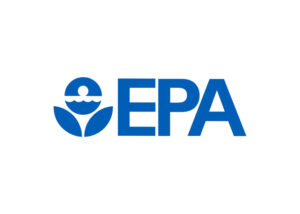
TikTok Tort
“I am pleased with the court’s decision denying TikTok’s attempts to dismiss our lawsuit. In the Commonwealth–and across the country–TikTok has put kids in harm’s way and exposed them to mature, explicit, and dangerous content.”
— Virginia Attorney General Jason Miyares on Virginia’s lawsuit against TikTok and its China-based parent company, ByteDance Ltd. The case will move forward in state court, despite TikTok’s efforts to have it dismissed. Richmond City Circuit Court Judge Richard B. Campbell ruled on October 24 that the case brought by Miyares is legally sufficient to state a cause of action against the social media company for multiple violations of the Virginia Consumer Protection Act (VCPA).

Third-Party Mitigation
“The rise in third-party litigation funding is particularly troubling, as it inflates claims costs and contributes to a tort tax, a hidden burden of more than $5,000 per household on average annually. That is why APCIA strongly supports federal legislation like the Litigation Transparency Act of 2025 and the Protecting Our Courts from Foreign Manipulation Act of 2025, which aim to bring much-needed transparency and accountability to this shadowy practice.”
— Sam Whitfield, senior vice president of federal government relations and political engagement at the American Property Casualty Insurance Association (APCIA). He pointed to litigation reforms in Florida, where legal filings have dropped by more than 30%.

Greenhouse Gas Reporting
“Rolling back or delaying federal reporting 10 years would not reduce the burden–it would create regulatory whiplash when these rules come back.”
— Lindsay Larrick, chief legal and administrative officer for natural gas producer BKV Corporation, commenting on the Environmental Protection Agency (EPA) proposal to stop greenhouse gas reporting for big polluters. The move would save oil and gas companies up to $256 million a year. However, some argue it could hurt business instead. The proposal would stop requiring most sources to submit this data and suspend collecting it for certain oil and gas sources until 2034. Of the roughly 8,000 affected industrial facilities and suppliers nationwide, nearly 2,300 are oil and gas operators.

Toxic Train Trials
“Every court to consider the issue has found BNSF was not simply hauling asbestos out of Libby but was instead working essentially as a business partner with W.R. Grace. Common carrier immunity does not shield BNSF from strict liability when working for its own purposes.”
— Montana District Court Judge Amy Eddy, who oversees the state’s special court for asbestos claims. BNSF is appealing a 2024 jury decision finding them liable for two mesothelioma deaths. The appeal centers around the question of whether BNSF should be protected by “common carrier immunity,” which shields railroad companies from lawsuits about the goods they transport.Wisconsin Ginseng Crunch

Wisconsin Ginseng Crunch
“Shipping is taking longer; selling it is taking longer. It’s just taking longer for us to convert the crop into cash.”
— Will Hsu, president of Hsu’s Ginseng Enterprises, which was launched by his father in 1974. Wisconsin ginseng growers have taken a hit from U.S. trade tensions with Beijing, a sluggish Chinese economy, and strong competition from cheaper Canadian suppliers. A generation ago, Wisconsin had 1,400 growers, while now the number is fewer than 70. The niche industry generated $14.7 million in U.S. exports to China in 2024, according to Chinese customs data. Some growers are now diversifying into other crops, such as hemp.

Mandatory Reporter Protection
“This opinion sends a clear and vital message to mandatory reporters in Florida and across the country that their duty to report suspicions of child abuse and, critically, their good faith participation in child protection activities remain protected.”
— Ethen Shapiro, of Hill Ward Henderson law firm, speaking after Florida appeals court struck down a $200 million verdict against Johns Hopkins All Children’s Hospital in the Maya Kowalski negligence lawsuit. The 2nd District appellate judges said the trial court allowed a too-narrow interpretation of Florida’s immunity statutes for those reporting suspected abuse and should have overridden the jury and provided a directed verdict.
Was this article valuable?
Here are more articles you may enjoy.


 Inside the Toxic Legacy of Georgia-Based Mulitbillion-Dollar Carpet Empire
Inside the Toxic Legacy of Georgia-Based Mulitbillion-Dollar Carpet Empire  Chubb CEO Greenberg on Personal Insurance Affordability and Data Centers
Chubb CEO Greenberg on Personal Insurance Affordability and Data Centers  What Analysts Are Saying About the 2026 P/C Insurance Market
What Analysts Are Saying About the 2026 P/C Insurance Market  Zurich Insurance’s Beazley Bid Sets the Stage for More Insurance Deals
Zurich Insurance’s Beazley Bid Sets the Stage for More Insurance Deals 


